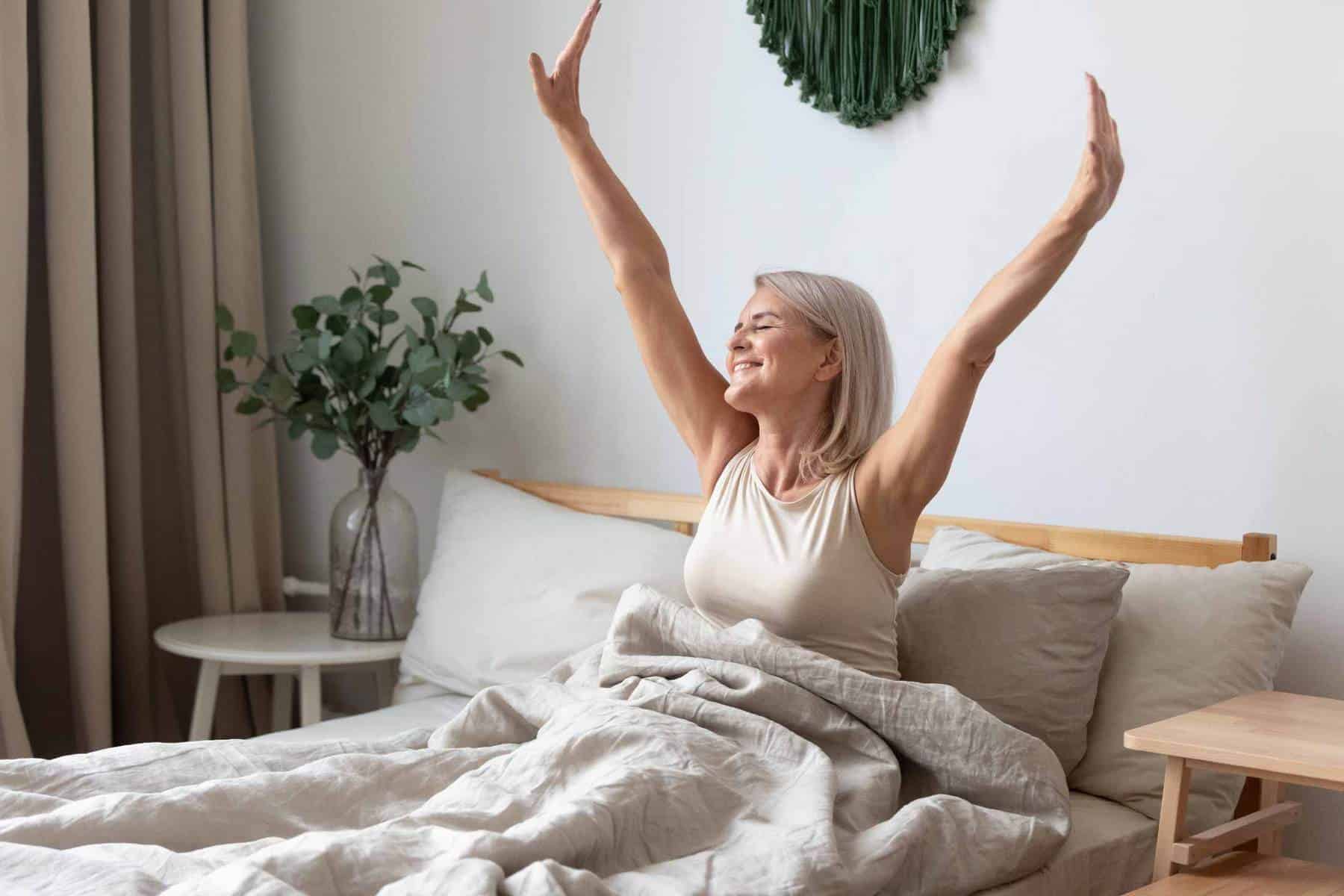Ensuring residents get sufficient and restful sleep is crucial. However, many elderly individuals face frequent sleep disturbances, significantly impacting their health and well-being.
Understanding sleep disturbance in care homes
Imagine being woken up every two hours every night, just to check if you are okay. Unfortunately, this is often the reality for many care home residents. Regular night-time checks, though necessary and well-intentioned, can unintentionally disrupt sleep, leading to adverse health outcomes.
Working with care homes Ally’s key findings on sleep disturbance are:
- 97% of regular checks occur when residents are asleep.
- 72% of these checks disturb residents’ sleep.
- 20% of checks wake residents to the point where they require assistance.
For many residents, disrupted sleep is a nightly occurrence, leading to decreased overall well-being and exacerbating existing health issues.
The broader impact of poor sleep on the elderly
Poor sleep has profound effects on the elderly, with consequences that extend far beyond feeling tired during the day. In the UK, it’s estimated that over 50% of people aged 65 and older experience sleep disturbances*, with a significant impact on their daily lives :
- Reduced energy levels: Chronic sleep deprivation leads to persistent fatigue, reducing the energy needed to participate in daily activities, which can lead to a sedentary lifestyle and increased risk of chronic diseases.
- Cognitive decline: Sleep is essential for brain function, including memory consolidation and cognitive processing. Poor sleep accelerates cognitive decline, contributing to conditions like dementia. In fact, studies have shown that people with poor sleep are 30% more likely to develop dementia**.
- Appetite and nutrition: Sleep deprivation can disrupt hunger hormones, leading to poor appetite or overeating. This imbalance can result in weight loss or gain, both of which are particularly concerning for elderly residents who may already struggle with maintaining proper nutrition.
- Emotional well-being: Lack of sleep is strongly linked to mood disorders, such as depression and anxiety, which are prevalent among the elderly. Poor sleep can exacerbate these conditions, leading to a decline in overall mental health.
- Increased risk of falls: Sleep deprivation impairs balance and coordination, significantly increasing the risk of falls—a leading cause of injury and hospitalisation among the elderly.
Promoting better sleep with Ally
To address these issues, care homes are increasingly turning to technology like Ally’s AI resident monitoring system. Ally’s system reduces the need for regular checks by providing proactive alerts when residents are awake, restless, or in need of assistance.
Impact of using Ally:
Many organisations (Care Homes, ICB’s, and the NHS ) have conducted research on Ally’s impact on care home residents, staff and the wider health system. Ally’s ongoing research shows on average, residents are awake 50% less. This is a significant change as it means that the following day residents are more awake and engaged after a good night of rest.
Jay Trondillo, Regional Director, Maria Mallaband Care Group shared his experience:
“We’ve seen first hand since having the Ally system that the majority of residents now have a more peaceful night than before which gives them more energy in the day and we have learned that this has also helped to improve their nutrition and energy levels as well”
Mia Williams, Head of Care at Oaklands Rest Homes confirms “Sleep deprivation is huge, being woken up every two hours by someone coming in your room is not good. It can lead to agitation and things like that, but obviously with Ally we don’t have to do that. We can listen, be reassured that they’re settled and they’re safe and we don’t have to disturb them.”
Benefits for care staff:
The reduction in night-time checks allows staff to reclaim up to 30% of their time, enabling them to focus more on residents who need care and to carry out other essential tasks.
“Ally’s system has transformed our night shifts, making them smoother and more efficient. We see a huge reduction in call bell usage at night.” – Night Team, Meifod and Vicarage Court Care Home
Why sleep matters for care home residents
Sleep is vital for maintaining mental and physical health, particularly in older adults. Disturbed sleep can lead to a range of issues, including:
- Irritability and depression: Poor sleep exacerbates mental health issues.
- Memory problems: Sleep is crucial for cognitive function, and lack of it can worsen memory issues.
- Increased risk of falls: Sleep-deprived individuals are more prone to falls and accidents.
Improving sleep quality in care homes has been proven to have a significant positive impact on residents’ overall well-being.
Long-term health benefits
Working alongside the NHS, ICBs and care homes and understanding the impact of the Ally system on sleep highlights key findings which are a result of improved sleep for care home residents:
- 63% fewer falls among residents.
- 56% reduction in hospital admissions.
- Significant reduction in agitated episodes during the day.
- Reduced need for night-time medication.
These improvements are not just about better sleep—they translate into better health and quality of life for residents.
“This kind of technology has been marvellous in enabling our residents to live their very best possible life. It is apparent that these kinds of technologies most importantly improve quality of sleep and not only reduce falls but also decrease subsequent hospital visits.” Melanie Dawson, Home Manager at The Lawns
Investing in better sleep: a strategic advantage for care homes
Investing in technology like Ally doesn’t just benefit residents; it also offers a substantial return on investment for care homes. By giving staff back 30% of their time, care homes can save approximately £10,000 per year per night shift staff member, representing a 6x ROI.
Moreover, improved sleep quality and personalised care can enhance CQC ratings, reduce staff turnover, and attract new residents, making the care home a preferred choice in the community.
Conclusion
The importance of sleep for care home residents cannot be overstated. By reducing sleep disturbances and investing in technology like Ally, care homes can significantly improve the health and well-being of their residents, while also realising substantial operational benefits.
If you’re interested in learning how Ally can help improve care outcomes and resident well-being in your care home, please get in touch.
*Source: Sleep Foundation: https://www.sleepfoundation.org/aging-and-sleep#references-130667
**Source: National Institute on Aging: https://www.nia.nih.gov/news/lack-sleep-middle-age-may-increase-dementia-risk

